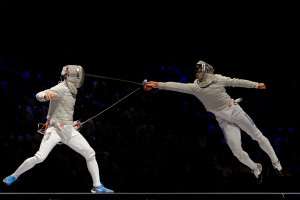 My new novel is developing slowly. I have 7,000 words since I started writing on August 1. That’s 500 words a day, a couple of pages, respectable, but I haven’t been feeling momentum.
My new novel is developing slowly. I have 7,000 words since I started writing on August 1. That’s 500 words a day, a couple of pages, respectable, but I haven’t been feeling momentum.
I think they’re “good” words, in the sense that I’ll be able to keep most of them. Usually I end up scrapping the first two thousand words I write because the story doesn’t get going until after that but it takes me that long to find the path forward. In this project, I have been laying up some early backstory but since there is no earthquake or alien invasion coming up, I’m not feeling compelled to start the story on the cusp of some great catastrophe, which is what one should do. This project is “literary,” and literary is supposed to be boring, dammit.
I hope it’s not really boring. My character is facing conflicts, but they’re of the domestic variety, not end-of-civilization-as-we-know-it. I confess I’m having a hard time “getting into” my main character, partly because he’s only seventeen years old and that age was another incarnation for me, one I can barely remember, and also because he’s living around 1900, which is a very alien world from our modern one. I assume readers will face the same difficulties, so I’m struggling to bring the character to life.
I think he’ll be more lively when I get him off the farm and into the university. He’s an intellectual kid who is not successful in farm life, but he should find his pace in academia, as so many of us did. Anyway, the main point of this story is to illuminate some ideas about perception and consciousness that interest me, and I can’t do that while he’s milking cows.
Why don’t I just start him out at the university then? Because I want him to come in ill-prepared, an outsider who follows his own pathways, doesn’t drink the kool-aid (as we used to say), and is more interested in finding out what’s true than how to get ahead. That will be the conflict that blows him out of the university, eventually.
Also explaining my sluggishness, I’m halfway through Virginia Woolf’s To the Lighthouse and it’s intimidating. She can pick out the subtlest thread of consciousness and make it glow as if it were the filament in an incandescent bulb. I close the book and I think, ‘Why do I even try to write?’
I tell myself that writing is harder today than it was in the 1920’s (notwithstanding the special challenges for women writers). I don’t think any of her novels would be published today, with the possible exception of Orlando. Today’s readers won’t tolerate pages and pages of internal rumination. They demand that “things happen,” big things, objective things in the world, clearly described. From what happens, we are to infer the characters’ interiority. And today’s readers demand consistent, persistent, narrative point of view, not head-hopping like a hungry hummingbird through a field of flowers. That’s what I tell myself, because the alternative is, ‘Why bother? I can never write like this.’
So I’ll get my character to New York starting tomorrow and set him right away to some intellectual fencing and maybe he’ll blossom and flourish. Or get stabbed.
